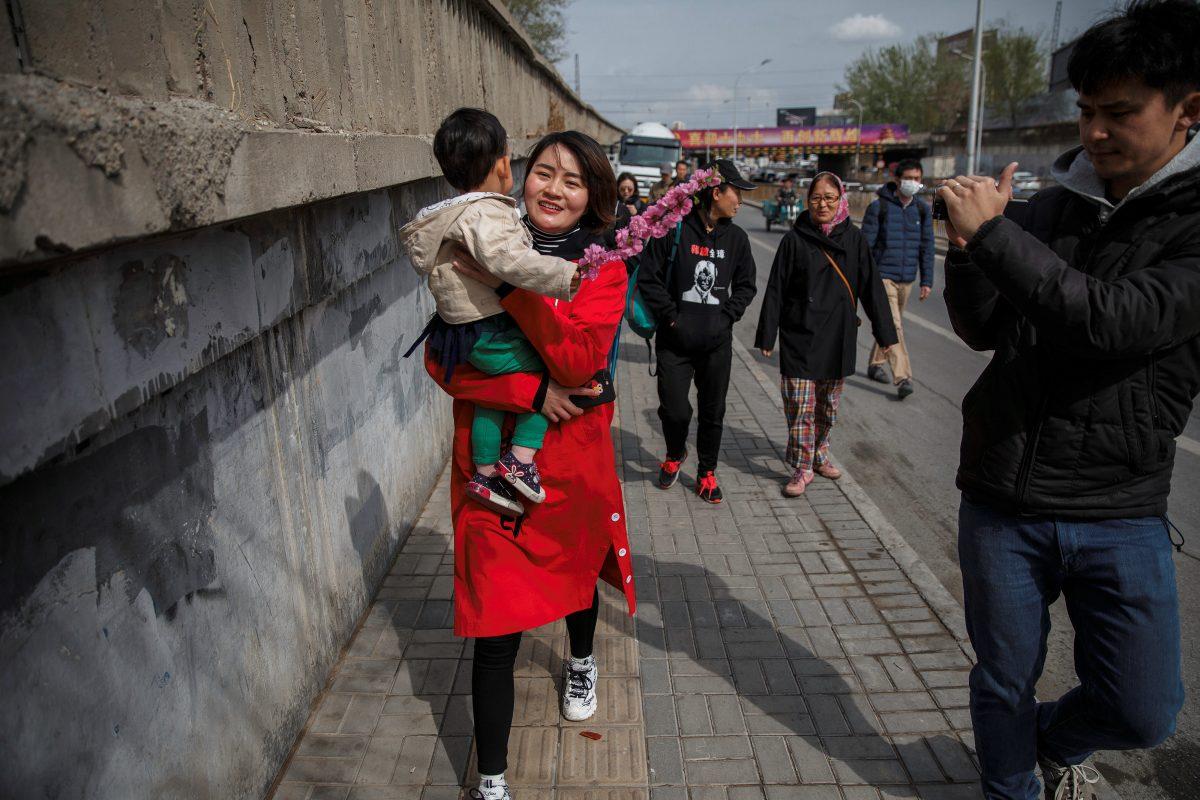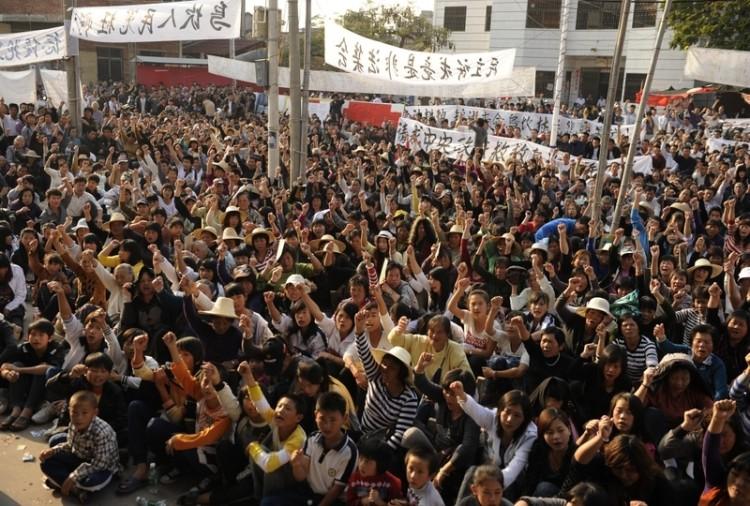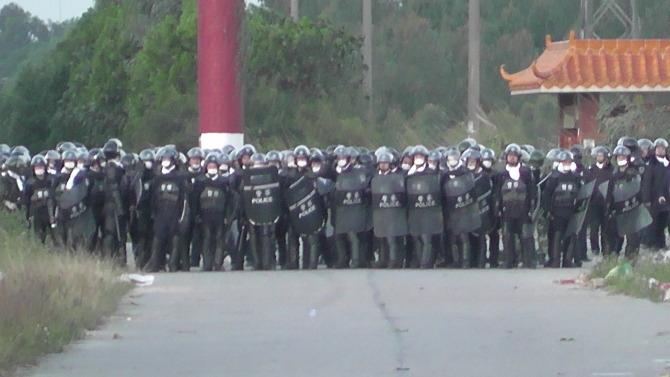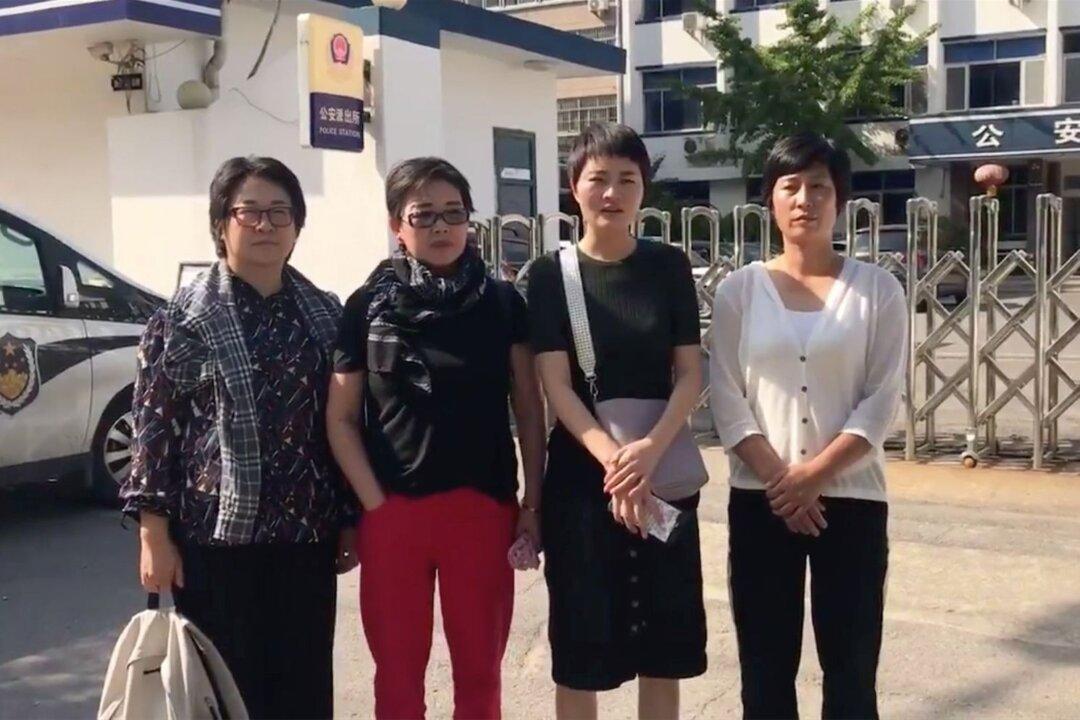Fourteen Chinese activists in Beijing are presenting themselves as independent candidates in the local People’s Congress election, posing a challenge to the ruling Communist Party that has long kept a tight grip over the twice-a-decade event.
Most of them have had firsthand experience of the harshness of authoritarian control, but say they hope to channel their frustration for the greater public good.
“As grassroots citizens, the 14 of us have deeply felt the challenges in communicating with the government, People’s Congress, courts, and procuratorates,” they said in a statement. “We have often looked for People’s Congress representatives through all different channels, hoping they could help us to convey our concerns to the government, but we have no hopes of meeting with them.”
Seeking A Voice
The election for the Beijing Municipal People’s Congress, scheduled for next month, will determine the representatives for urban districts and rural counties in the region. Such local elections are the only opportunity for citizens to cast their votes in the communist-ruled country.While Chinese law allows independent candidates to run, trying to get their names on the ballot could prove a difficult exercise. Independent candidates in China often face harassment and detention by the police, on top of procedural roadblocks.
Activist Ye Jinghuan is running for the election her third time despite receiving police threats in the past.
After she announced her first candidacy in 2011, she was quickly targeted and was beaten by uniformed police. The second time, in 2016, local neighborhood committee members and plain-clothed police tried to block her from campaigning.
“They surrounded our house, surrounded our courtyard so as to stop us to go to populous places to campaign for votes,” she told The Epoch Times, adding that the police also tried to prevent Western media reporters from interviewing her.
“We wanted to explain our situation to the People’s Congress representatives because they have some power, they can at least talk to government authorities,” she said.
In reality, though, they could get detained for trying to air their grievances to the delegates, according to Ye. They “are becoming farther apart from us,” she said.
So Ye decided to run herself.
Li Hairong, a farmer living in Beijing’s Chaoyang district, has sought justice for the past decade after authorities forcibly tore down her house in 2011.
“I really want to become a People’s Congress representative who can be found by other people,” he told The Epoch Times.
‘These People Are the Future’
Wives of two prominent human rights lawyers previously detained during the “709 Incident,” a wave of arrests in 2015 targeting hundreds of the country’s defense lawyers and dissidents, also announced their bid.
“The People’s Congress representatives only exist on TV,” Li told The Epoch Times. The absence of lawful representatives who can speak up for her husband during those difficult years gave rise to her strong desire to step in to fill the void, she said.
Yang Sen-hong, head of human rights group Taiwan Association for China Human Rights, said the 14 candidates represent China’s hope for greater freedoms.
“These people are the future,” he told The Epoch Times. He was confident that they would win in a normal election.
But pressure from authorities has been intensifying.
Candidate Guo Qizeng suspects that authorities have tapped his phone. Calls from the United States would prompt a warning or get hung up automatically, he told The Epoch Times.
Liu Xiuzhen, who has already received multiple police visits, said that Beijing will likely use two review processes to screen unfavorable candidates out.
“They never wanted us to participate in the elections,” she told The Epoch Times.
Chinese people have long sought, and failed, to secure democracy from the authoritarian Chinese Communist Party.

In September 2011, Wukan—a small fishing village in southern Guangdong Province with a population of 20,000—showed glimmers of grassroots democracy. For a short period, the villagers rebelled over officials’ corruption and land grabbing efforts and drove them out.

It is unclear whether the 14 candidates will be allowed to persist in their runs. But Cheng Hai, a China-based civil rights lawyer who had defended his peers arrested during the 709 crackdown, believes the Chinese people need to persist.
“Abandoning your ballot is the same as abandoning your rights to political decision making,” he told The Epoch Times. “It’s equivalent to acquiescence,” he said.






